Looking for a houseboat in Vancouver? Check out this floating home in Coal Harbour Marina! This 300-square-foot houseboat was built in 1984 and is one of just twenty boats docked in the marina. The location is excellent – within walking distance to downtown Vancouver!


The main living area and kitchen feature lots of windows and natural light. Moreover, some built-in storage and a pull-out table are emphasized too.

This floating home in Coal Harbour Vancouver takes a creative spin on the tiny house trend with a nautical style that adds to this easy, breezy lifestyle.

This harbour is considered one of the best in North America and is full of gorgeous yachts of the rich and famous.

The one-bedroom, one-bathroom float home has an open concept living area with a loft.
Overall, this tiny floating home is for sale. It roughly costs $229,000 in Coal Harbour and you can always tour the sea around and escape the busy streets.
“Living on a floating home is a marvellous adventure, romanticized by many, realized by few.”
Engel & Völkers listing.

It’s also only one of 18 floating homes in Vancouver, and one of 6 in Coal Harbour Marina. Vancouver has been home to many of these floating houses since the early 19th century when they were nothing more than log cabins on log floats.
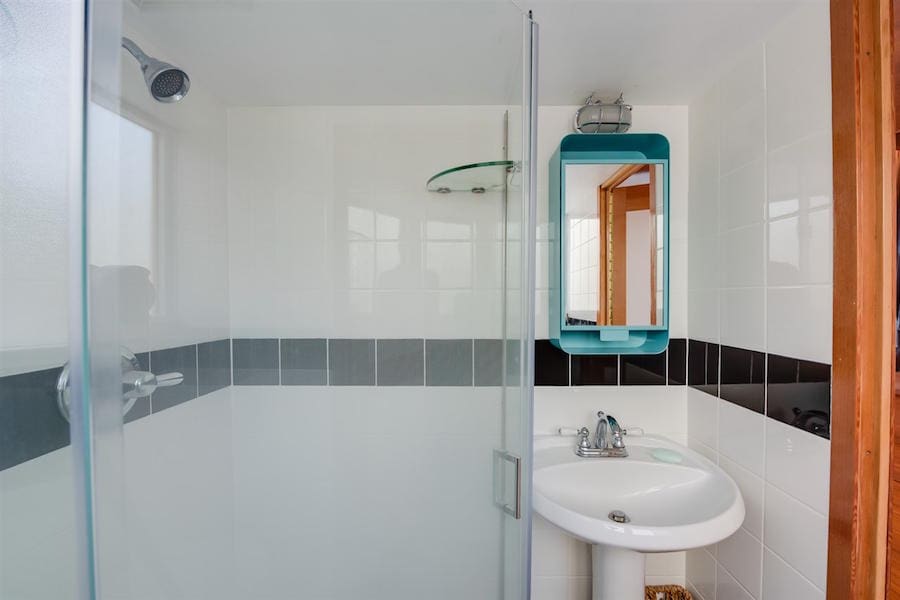
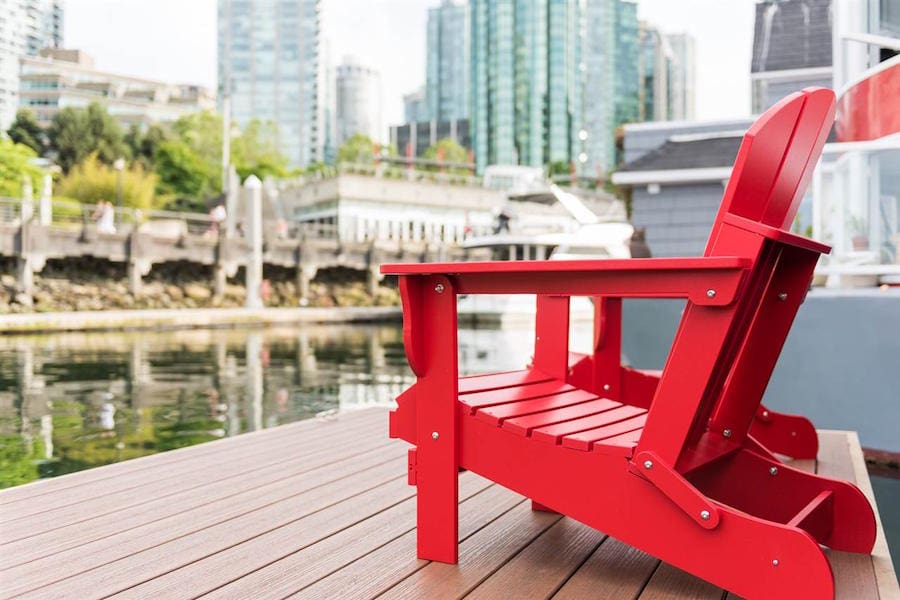
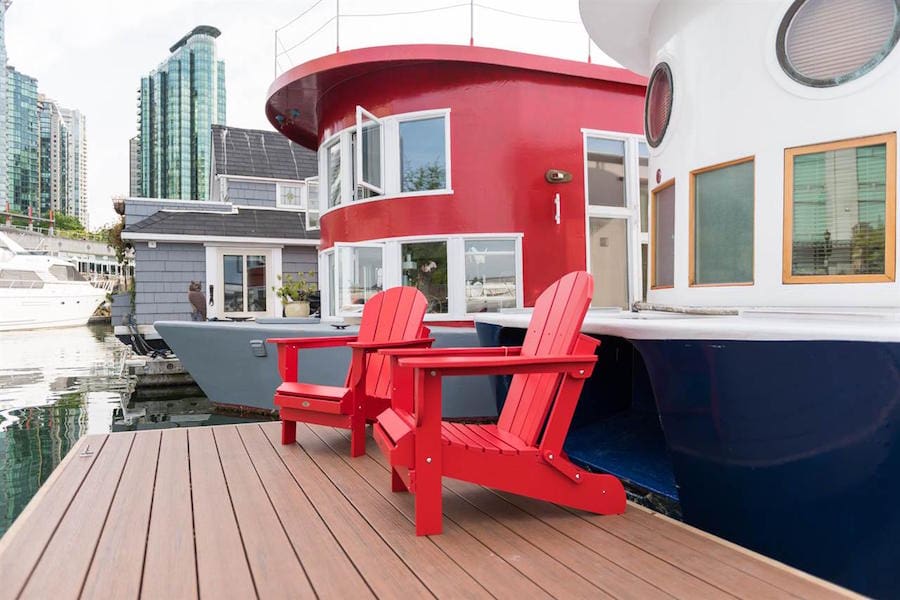
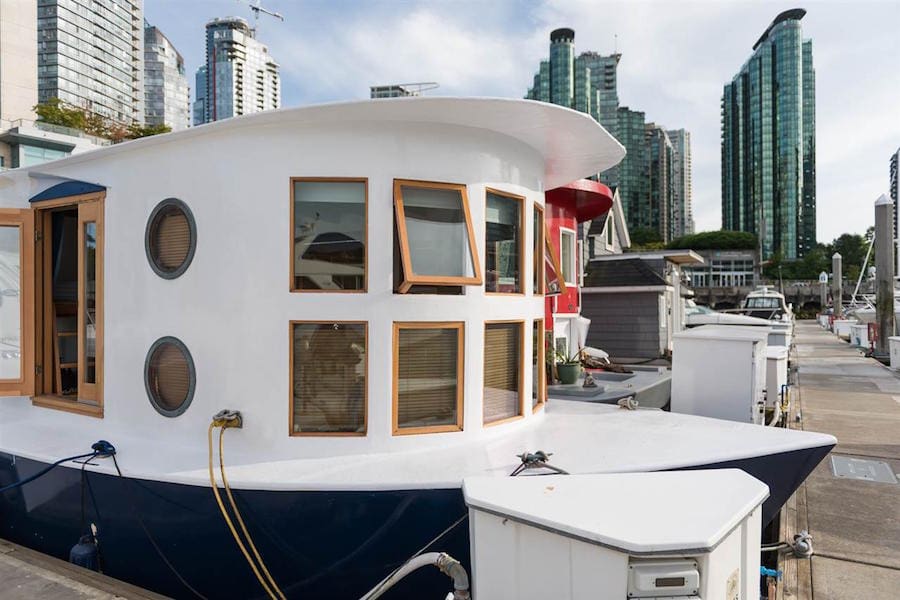
A 300 square feet floating home in Coal Harbor in Vancouver, British Columbia, Canada.
FAQ about Floating Home in Coal Harbour Marina
1. What are houseboats and why are they becoming increasingly popular in Vancouver?
Houseboats are boats that have been converted into homes. They are becoming increasingly popular in Vancouver because they offer a unique and affordable living option in the city.
There are a few houseboat communities in Vancouver, including Coal Harbour Marina. This marina is within walking distance to downtown Vancouver, making it a convenient place to live.
2. The different types of houseboats available in Vancouver
There are a few different types of houseboats available in Vancouver. The most common type is the floating home, which is a houseboat that is permanently moored in a marina.
Other types of houseboats include live-aboard boats, which are houseboats that you can move around and live on like a regular boat, and house barges, which are houseboats that are not permanently moored and can be moved around.
If you’re interested in living on a houseboat in Vancouver, there are a few different options to choose from!
3. How to find a houseboat that’s perfect for you
If you’re interested in living on a houseboat in Vancouver, the best way to find one that’s perfect for you is to start by doing some research.
There are a few different houseboat communities in Vancouver, so take some time to explore each one and see which one feels like the right fit for you.
Once you’ve narrowed down your options, take a look at the different houseboats that are available and see which one meets your needs.
If you’re not sure where to start, there are a few houseboat rental companies in Vancouver that can help you find the perfect houseboat for you.
Living on a houseboat in Vancouver is a unique and affordable way to live in the city. With a little bit of research, you can find the perfect houseboat for you!
4. The benefits of living on a houseboat in Vancouver
There are a few benefits to living on a houseboat in Vancouver. One of the biggest benefits is that it’s an affordable way to live in the city. Houseboats are also generally smaller than regular homes, so they’re easier to maintain and clean.
Another benefit of living on a houseboat is that you’re surrounded by water. This can be a great way to relax and unwind after a long day. And, if you have a boat, you can easily go for a cruise around Vancouver!
5. How to care for your houseboat
If you live on a houseboat in Vancouver, there are a few things you need to do to care for your houseboat. First, you need to make sure that you have insurance for your houseboat. You should also have a mooring permit from the city.
You also need to take care of your houseboat by doing regular maintenance, such as cleaning the hull and making sure the engine is in good working order. And, if you have a live-aboard houseboat, you need to properly dispose of your sewage.

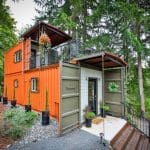

Comments
Loading…